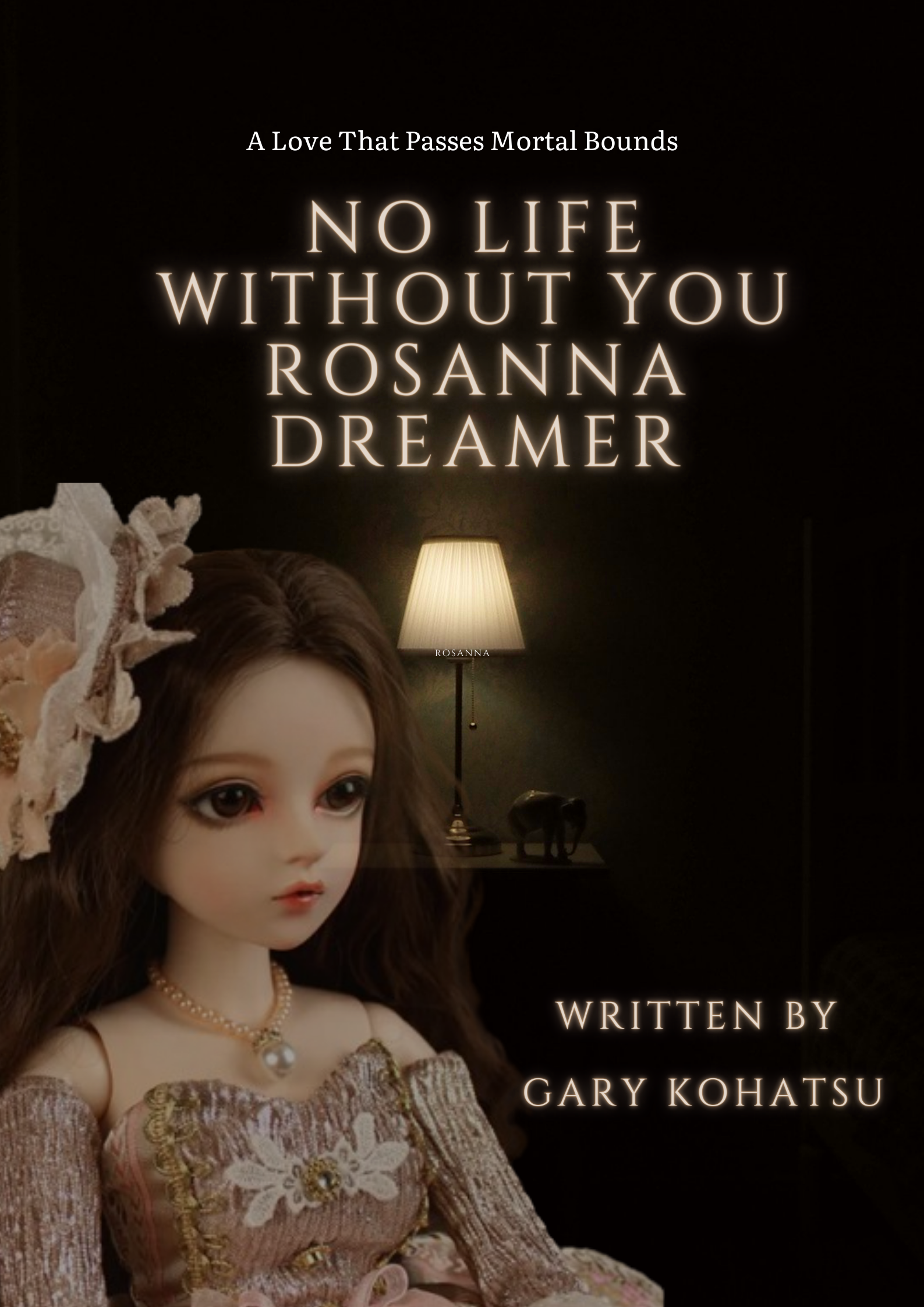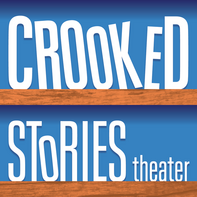No Life Without You, Rosanna Dreamer
(short horror) 11 pages by Gary Kohatsu
Mobsters visit a nightclub performer about a debt, unaware that he is a practitioner of the black arts.
 Do you enjoy a classic revenge tale with a touch of enchantment and mystery? Or perhaps a whirlwind narrative of an undying love that transcends mortal bounds? If so, you’ll be captivated by Gary Kohatsu’s “No Life Without You, Rosanna Dreamer.” A haunting story of magic, romance and revenge that is anything but ordinary.
Do you enjoy a classic revenge tale with a touch of enchantment and mystery? Or perhaps a whirlwind narrative of an undying love that transcends mortal bounds? If so, you’ll be captivated by Gary Kohatsu’s “No Life Without You, Rosanna Dreamer.” A haunting story of magic, romance and revenge that is anything but ordinary.
Now, imagine yourself in the shoes of our main character, Hector, who was once hailed as a master illusionist, puppeteer, and ventriloquist. Hector is now a solitary and ailing man, grieving the loss of his cherished wife, Rosanna, cruelly snatched away by a despicable mobster. Rosanna wasn’t just his spouse; she was his exquisite soulmate and lifelong companion on the dance floor.
What does Hector do?
He recreates Rosanna in the only way he knows and soon plots his revenge against the men who tore her away from him.
Our story begins in Hector’s dilapidated dressing room, where we first meet him as he carefully prepares Rosanna. She appears to be a child with long raven hair, sitting on the table with her back turned to us —
ROSANNA
If I sing off-key, the audience goes
apeshit. But if you sing off-key,
this act goes straight down the shitter.
HECTOR, early 40s, plops in a chair behind Rosanna.
HECTOR
I’m the star. So please,
young lady, watch your mouth.
He’s tall, paunchy. Pallid of face with a scruffy beard.
ROSANNA
Nobody gives a dummy’s ass
about my mouth. It’s your
mouth they are watching.
Rosanna and Hector banter back and forth, her cheeky personality shining through – so it comes as quite a surprise when Hector spins Rosanna around, revealing that she is, in fact, a ventriloquist doll with a wan smile and eyes closed…
However, those eyes flutter open to the sound of a familiar, ominous whistling tune —
ROSANNA
Uh-oh.
Strolling out of the shadows is LON, mid-30s, thin build, slick dark hair. He’s dressed like a gangster on holiday.
LON
Bravo. Encore. How ya doin’,
Hector? It’s me, Lon. Paying
you a friendly visit…
He moseys toward the table. Slips his fists into black leather gloves.
LON
Thought maybe you wanna
settle your debt today.
Get it outta the way.
HECTOR
June 20th. Please. As we
agreed.
The visit from the menacing Lon brims with subtle threats, expertly captured by Kohatsu’s sharp and on-point dialogue —
LON
Sure thing. Me and the fellas
will be back. But I ain’t
comin’ as a friend.
HECTOR
I perform simple feats of
magic in a night club. For
little pay. Look around. You
see anything here of value?
Lon zeroes in on Rosanna.
LON
How ‘bout doll face? She part
of your magic act?
Hector pulls Rosanna from her chair. Holds her close.
LON
How ‘bout I take doll face
off your hands? Show her
what a real man can do.
HECTOR
Get out.
ROSANNA
Sir, I’m taken.
Lon flashes a lecherous grin.
LON
Goddamn amazin’ how you do
that ventriloquist shit.
HECTOR
I’m not a ventriloquist.
ROSANNA
He’s not a ventriloquist.
Nevertheless, Lon proceeds to have his way with Rosanna, on the vile notion that she “gives dynamite head” —
He jams a 9mm. Glock and silencer into Rosanna’s mouth.
LON
Say ahh, little darlin’.
ROSANNA
Ahhh… nuts.
Lon blasts a hole through the dummy’s head.
The narrative then unveils a brief yet chilling flashback to the night of Rosanna’s tragic demise – a beautiful bride mercilessly gunned down by Lon and his goons during her and Hector’s wedding reception. Though fleeting, the scene’s impact is profound, resonating deeply with the tale’s core emotional essence.
Returning to present day, Lon leaves Hector heartbroken once more, leaving behind the ominous threat of his imminent return to collect what he believes he is owed. Hector, unable to bear any more, resolves that it’s time for payback, and perhaps a touch of magical reincarnation. Hector proceeds to resurrect the spirit of Rosanna, with writer Gary Kohatsu intricately depicting the details of this mystical procedure. It involves Rosanna’s remains, a magician’s hat, and a glass tube containing a sacred scroll.
In a transcendent moment, after orchestrating the darkly magic ritual, Hector settles back and observes his shadow transform into the former “Magnificent Hector,” complete with hat, wand, and cape. As Hector drifts into slumber, we are ushered into a beautifully crafted dream sequence. Here, Hector envisions himself as “The Magnificent Hector,” a mesmerising magician captivating the audience on stage. Tenderly, he conjures Rosanna, his departed love, from a small casket, and she materialises as a life-sized doll –
A sparkle of life in Rosanna’s eyes. Dark hair bounces off her shoulders. She glides with the control of a ballerina.
Pirouettes – then jete, jete, jete, grand jete, and into Hector’s waiting arms.
He catches her as she transforms into:
The BEAUTIFUL WOMAN of his past. Rosanna, his BRIDE,
HECTOR
Sounds of the rude world
heard in the day, lulled by
the moonlight have all passed away.
The couple dances in flits and flurries under the fiery spotlight. Holding each other like impassioned butterflies. Their eyes never leave each other. Like Astaire and Rogers.
Eventually, Rosanna guides Hector to a chair, where he slumps, and she bids farewell to the audience before unveiling a flame thrower and setting the room ablaze, ending the dream sequence.
The tale reaches its climax as Hector confronts Lon and his accomplices, orchestrating a dramatic showdown that leads to a fiery reckoning. The final image, both mystical and bittersweet, encapsulates the enchanting tone that pervades the narrative. I’ll leave all of that as a surprise, as it simply cannot be fully appreciated without delving into the script itself.
No Life Without You, Rosanna Dreamer seamlessly blends Neo-Noir thrills with a haunting touch of fantasy and romance. Additionally, one of my favourite characters makes an appearance – a ventriloquist dummy. Rosanna injects the story with humour, fascination, a touch of fear, but above all, a genuine sense of endearment.
I cannot tell you how much I would love to see this story play out on screen!
Production Notes: This short presents a brilliant opportunity for an up-and-coming filmmaker to showcase their ability to bring a magical story to life on screen. Talented actors would be needed to portray the roles of Hector, Lon, and Rosanna. With clever use of special effects, the budget could still be kept at a minimum for scenes like the explosion and the enchanting dream sequence. Alternatively, this story could be adapted into a delightful adult animation project.
Locations: Three: A dressing room, a restaurant and a stage.
No Life Without You, Rosanna Dreamer was runner-up in the Simply Scripts August 23 Fever Dream OWC.
About the writer: Gary Kohatsu is an aspiring, LA-based screenwriter with a love of horror, science fiction and thriller movies, and independent productions. He studied photography at Narbonne HS, which led to a career as a news writer and photographer. He taught photojournalism at the college level and has been a freelance writer/photographer for Track and Field News, and various martial arts magazines.
Read: No Life Without You, Rosanna Dreamer (short horror) 11 pages in pdf format
Discuss on the Discussion Board
*This screenplay may not be used or reproduced for any purpose including educational purposes without the expressed written permission of the author.
Find more scripts available for production.
About the reviewer: Colin Sharp is an aspiring screenwriter whose lifelong love of film led him onto the road to writing his own stories. Whilst a fan of all genres of film, Colin primarily enjoys writing comedic tales but is also a sucker for romance and anything that will “scare the bejesus out of him”.






